73-YO Man Turns 200 Acre Land Into Organic Farm, Saves 2 Cr Litres of Water/Year!
He set up Jaycee Agro Farms, with the help of his family, to tackle the issues of chemical-based farming, and bust the myth that organic agriculture is loss-making.
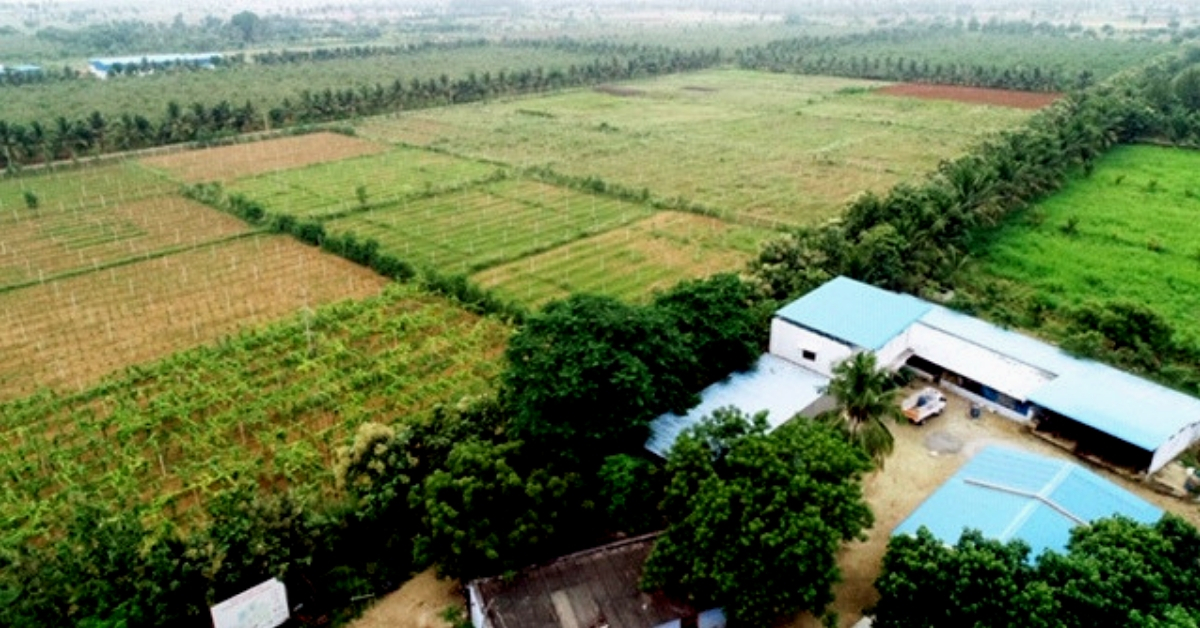
It has been 11 years, and 73-year-old Jayachandran’s routine has not changed. He travels 675 km from his home in Chennai to his farm once every week. He spends four days working there before returning home.
It was upon retiring from a 40-year-long career in the sugar industry that K. Jayachandran decided to choose a road many would not take.
He set up Jaycee Agro Farms, with the help of his family, to tackle the issues of chemical-based farming, and bust the myth that organic agriculture is loss-making.
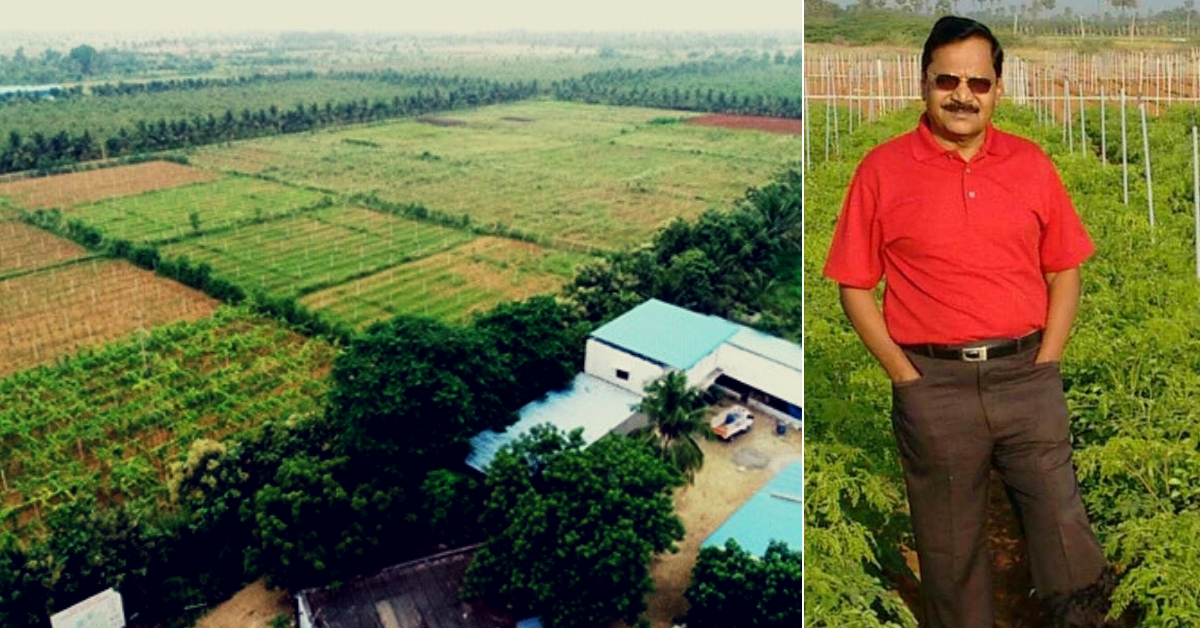
His stint in the agro-based industry had helped him interact with thousands of farmers. And belonging to a farmer’s family himself, he was no stranger to the issues that plague Indian agriculture.
He was aware that during the Green Revolution scores of farmers across the country had turned to chemical fertilisers and pesticides to increase production. And while such practices did offer farmers short-term benefits, they rendered acres of land unsuitable for farming due to the effects of the chemicals on soil health.
In an area of 200 acres, Jayachandran’s Demeter-certified (one of the leading organic agriculture certifiers) farm fuses conventional natural farming methods, biodynamic cultivation and new technologies to make farming sustainable and profitable.
The farm is verdant with a green cover of over 51,000 trees, follows multi-cropping over monocropping, has a dairy unit, produces its manure and biopesticides, a food processing unit and even a microbiology lab!
The Government of Tamil Nadu has appointed Jayachandran as the resource person for the training of farmers in organic and biodynamic farming. From NABARD officials to farmers from different parts of India and students, he has been conducting free workshops and training sessions for all in the last two and a half years.
To this date, Jayachnadran has helped train more than 1,500 farmers and students from across India on this farm completely free of cost.
In an exclusive interview with the man himself, The Better India delves deeper into his journey.
Methods his farm follows.
Biodynamic method of cultivation: This technique is a form of organic farming and does not rely on any chemical fertilisers or pesticides to grow crops. Founded by Rudolf Steiner, this method differs in that it brings together astronomy and farming together. The biodynamic way of cultivation gives priority to soil health. It treats soil fertility, plant growth, and livestock care as ecologically interrelated tasks.
Integrated farming
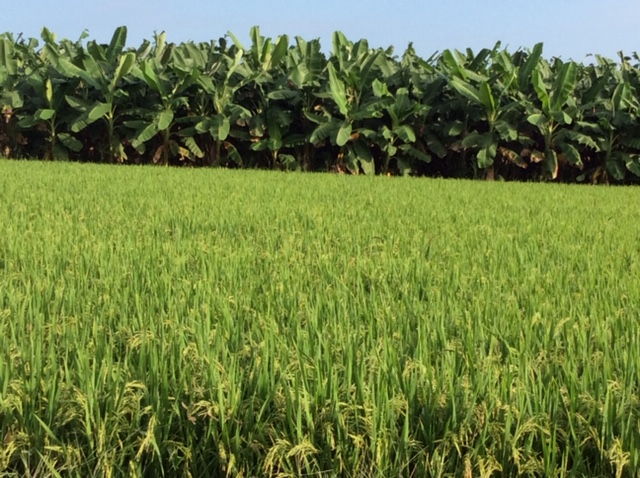

Located in Udayampuli Village of Alankulam taluka in Tirunelveli district, one of the important features of Jaycee is its integrated farming method. Plots are divided and allocated to different activities within the farm that add value. The farm adopts a diversified or multi-cropping pattern instead of mono-cropping.
They grow paddy, coconut, banana, lemon, amla, mango, sapota, teak, neem, moringa, exotic fruits, a range of vegetables, herbs and almost 18 varieties of medicinal plants! The 51,000 trees planted in the property are native species.
Producing its manure, biopesticides & dairy products
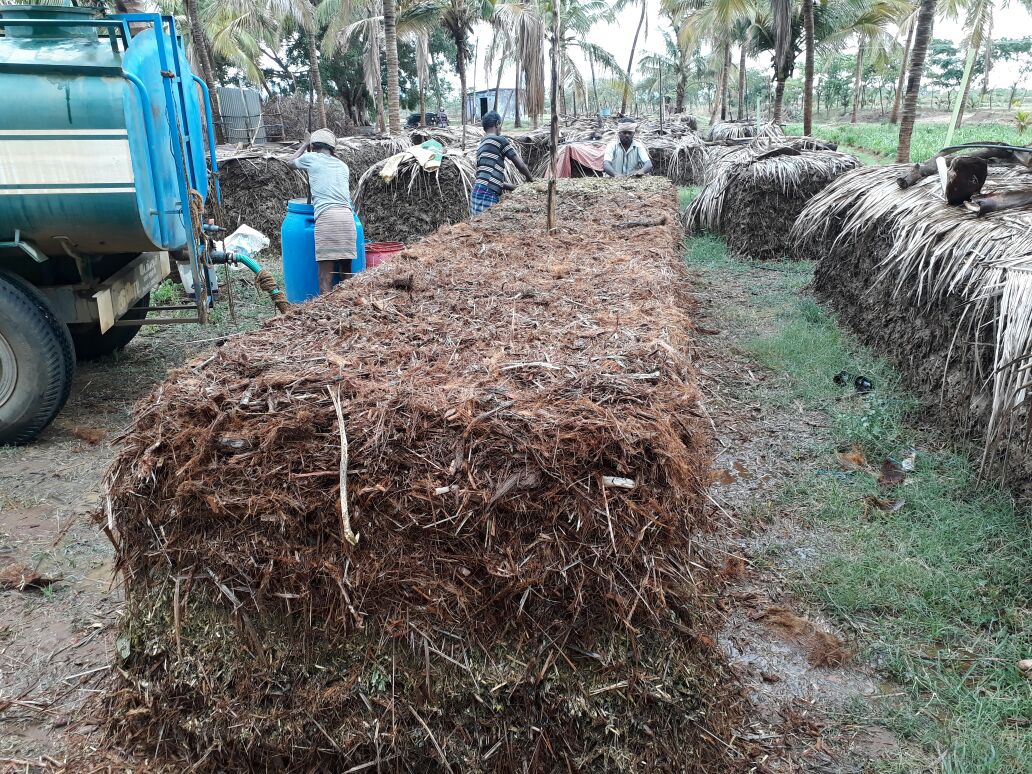
The farm runs a full-fledged dairy unit with over 52 native cows. With cow dung, cow urine, milk, curd and ghee, the produces their own organic and biodynamic compost, manure and pesticide which they use extensively used in their Integrated Agro Farm.
The farm produces a wide range of organic manures such as panchagavya, amirthakaraisal, jeevamrutham, effective microorganism [EMO], Bio NPK, fish amino acid, fish proteins, vermicompost, etc. and also Bio-Pesticides, namely, Trichoderma viride, Pseudomonas and a variety of herbal pest repellents made from plants in the farm.
Water-efficiency & Rainwater Harvesting
Spending close to a crore on rainwater harvesting infrastructure, the farm uses interconnected drip irrigation and has over six open wells, six percolation ponds, and 28 borewells. The canals with check-walls, running the length and breadth of the farm, stops the surface water run-off.
These measures help save over two crore litres of water annually!
The percolation ponds have helped recharge the groundwater table not only on their farm but also in the farms of several small and marginal farmers in the vicinity.
Processing Unit
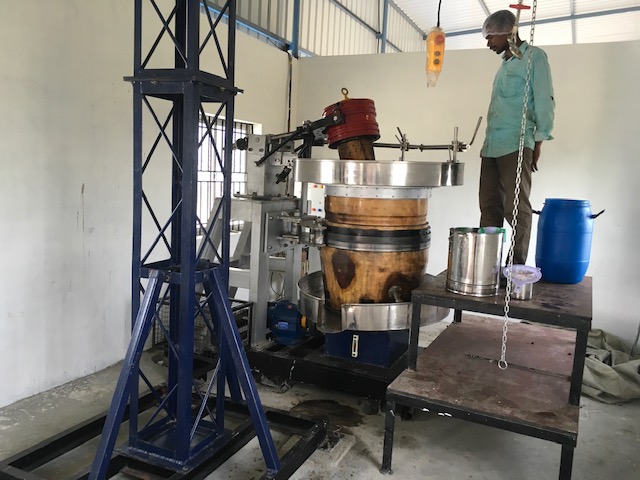
“Farming shouldn’t be restricted to just growing crops and selling them. Value addition can help make it profitable. For, e.g., A farmer has the option to either sell tomatoes that he has produced as it is, or sell them in a processed form like juice, jam, puree, or even sauce. Which one do you think will earn him more profits?” says Jayachandran.
Thus, the farm works on a ‘Farm to Home’ concept where they process fruits, vegetables, herbal products, and various edible oilseeds into finished products.
It has also established a solar drying-cum-pulverising facility to produce a wide range of herbal teas and soup powders like moringa leaf powder, Moringa tea, moringa soup powder, curry leaf powder, Indian Borage powder, Indian Borage tea, and Amaranthus soup among others.
The farm aims to expand the processing unit to turn amla, banana, mango, papaya, guava, pineapple, lemon, etc. into value-added products like fresh fruit cuts, dehydrated fruits, vegetables, coated fruits, juices, powders, jams, jellies, etc. They have also set up a wooden cold pressed unit for extraction of sesame, groundnut, and coconut oil.
“We aim to extend this to small and marginal farmers. We are now working on a project with the Ministry of food processing industries and the State Bank of India, to help turn small and marginal farmers to organic farming. Whatever they produce, we will buy it at 50 per cent more than the existing market price, process it and then sell it. This will not only ensure that farmers make the sustainable switch but also earn additional income,” informs Jayachandran.
Currently, farmers process 40 per cent of the produce and more than 70 per cent of their harvest goes to the export market.
You may also like: Telangana Techie Gives Up Job in the US, Revives 30 Acre Farm & Now Earns Lakhs!
Women empowerment
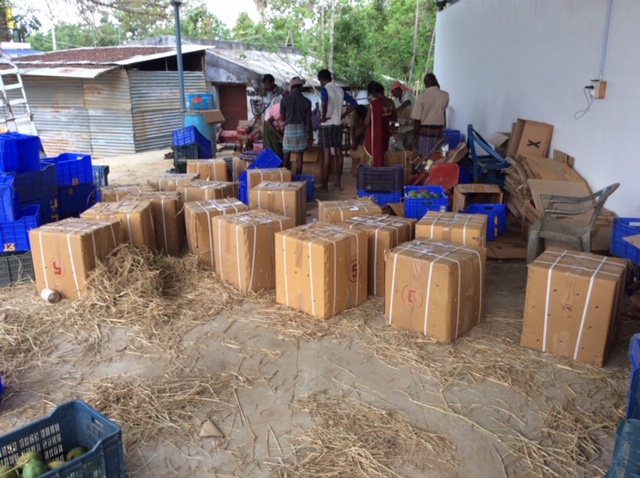
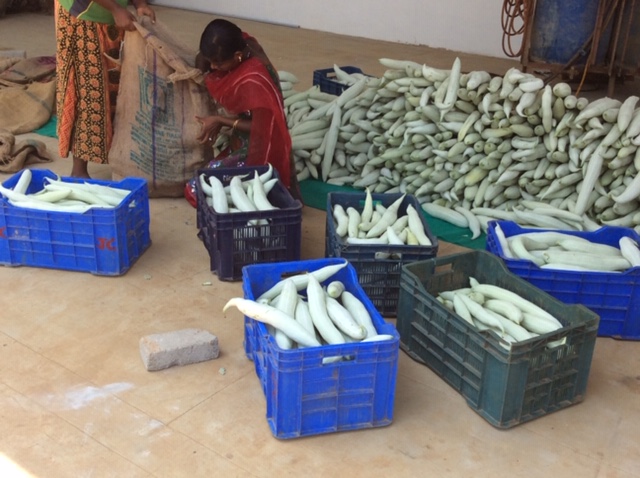
Of the 55 people working on the farm, 70 per cent are local women. Young graduates and postgraduates work at the unit producing organic, biodynamic manure and pesticide and the microbiology lab.
Globally recognised entities like Lacon, Germany, Halal India (which entitles the company to export their products to all the Islamic countries) and Demeter International have certified the farm.
But was the journey to becoming a model farm was not easy at all.
Speaking about the challenges associated with practising organic and biodynamic farming, Jayachandran says, “The challenge is to sustain and revive soil health. For three years, we bore losses. The journey is slow but rewarding in the long run.”
The farm is always open to all those who want to visit and learn more.

In the end, Jayachandran shares a few essential lesson he learnt.
“It is wonderful to see the new generation of farmers making the switch to organic farming. But the awareness, about getting their land and their products certified is still low. Besides, the misconception that organic farming is a loss-making business needs to change. Our farm, as well as the farms of several progressive farmers in India, is a testament to it. Yes, you have to struggle for some time. But if you do it with honesty and sustain, the cost of cultivation will come down, and the profit will increase. Chemical-laced food threatens our well-being and the health of our soil. In such times, organic and biodynamic farming is the way to go.”
He emphasises on a few factors that farmers need to keep in mind to make organic farming sustainable and profitable:
• Farming is not a vocation. It is an industry where farmers invest a lot of money. So it is essential for us to maintain integrity and transparency by keeping records.
• Secondly, only an interest in farming is not enough to survive. You have to have the passion and perseverance to get involved in every step completely.
• And lastly, where you invest a lakh or a crore on your farm, ensure you have an investment plan.
When you keep these factors in mind, nothing can stop you from becoming successful.
Looking at Jayachandran’s life, it seems that work post-retirement in the lush green fields may not seem like a bad option after all!
If this story inspired you, get in touch with K Jayachandran at [email protected]
Know more about Jaycee Agro Farms here.
(Edited by Saiqua Sultan)
Like this story? Or have something to share?
Write to us: [email protected]
Connect with us on Facebook and Twitter.
If you found our stories insightful, informative, or even just enjoyable, we invite you to consider making a voluntary payment to support the work we do at The Better India. Your contribution helps us continue producing quality content that educates, inspires, and drives positive change.
Choose one of the payment options below for your contribution-
By paying for the stories you value, you directly contribute to sustaining our efforts focused on making a difference in the world. Together, let’s ensure that impactful stories continue to be told and shared, enriching lives and communities alike.
Thank you for your support. Here are some frequently asked questions you might find helpful to know why you are contributing?


This story made me
-
97
-
121
-
89
-
167











